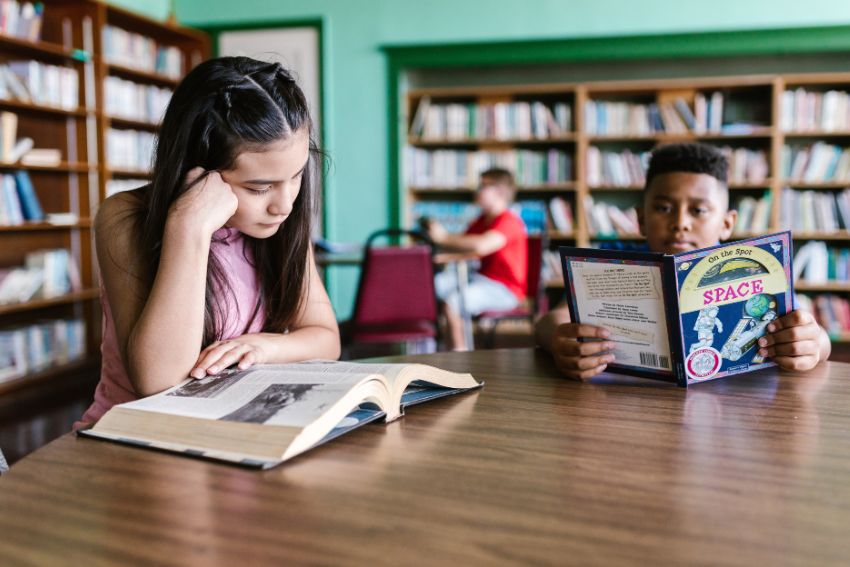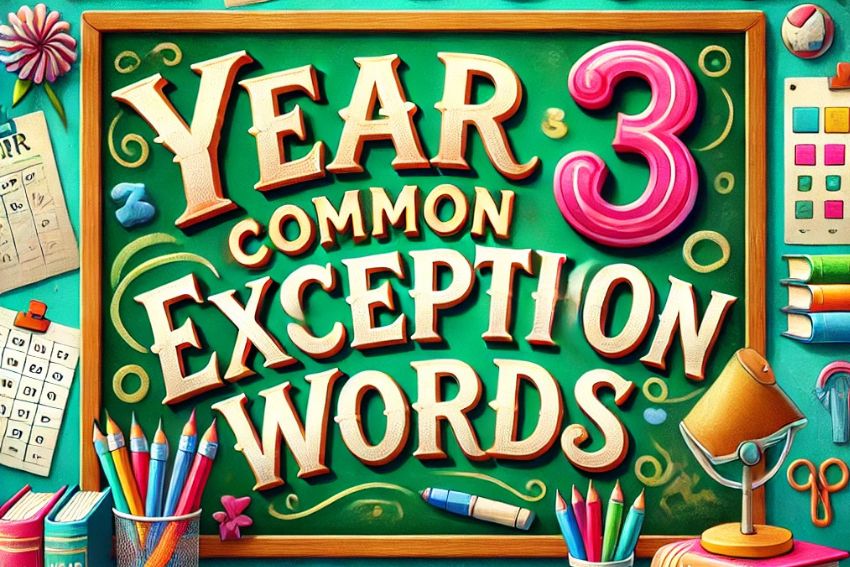Reading is one of the most important skills a child can develop, and Key Stage 1 books play a vital role in building strong literacy foundations. At this stage, children are learning to recognise words, understand simple sentences, and develop a love for stories. Choosing the right books can make a huge difference in boosting confidence, improving vocabulary, and enhancing comprehension skills.
This guide is here to help parents and teachers navigate the world of Key Stage 1 books, ensuring children get the best start in their reading journey. Whether you’re looking for phonics-based books, picture books, or early chapter books, this article will help you find age-appropriate and engaging reading materials that support literacy development and make learning fun. Let’s dive in!
What Is Key Stage 1?

Key Stage 1 is a crucial stage in the UK education system, covering Year 1 and Year 2 for children aged 5 to 7 years. At this stage, children build on the early learning foundations established in Reception, focusing on reading, writing, maths, and basic comprehension skills.
In English, Key Stage 1 students gradually develop their phonics knowledge, allowing them to recognise letter sounds and blend them into words. As they progress, they learn to read simple sentences with increasing confidence while also beginning to write independently. Moreover, schools follow a structured curriculum that incorporates storytelling, sentence-building, and vocabulary development, ensuring that literacy skills improve in an engaging and systematic way.
Key Stage 1 books play a significant role in this process, helping children practise reading fluency, improve comprehension, and develop a love for books. With phonics, picture, and early chapter books, children explore genres, preparing for Key Stage 2 and beyond.
What Are Key Stage 1 Books?
Key Stage 1 books are specially designed reading materials for children aged 5 to 7, following the UK curriculum. These books help young readers develop fluency, comprehension, and vocabulary through age-appropriate language and engaging content.
At this stage, children transition from learning to read to reading to learn, which is why Key Stage 1 books focus on simple sentence structures, phonics-based learning, and colourful illustrations to keep them engaged. By reading a mix of books, children strengthen their literacy skills while developing a lifelong love for reading.
Types of Key Stage 1 Books

Choosing the right Key Stage 1 books helps children build essential reading skills while keeping them engaged and motivated. Different types of books serve different purposes in early learning, making it important to offer a variety of reading materials.
Phonics Books – These books support early reading development by focusing on letter sounds, blending, and decoding words. Moreover, they follow structured phonics programs that gradually introduce new sounds, helping children build confidence in reading independently.
Picture Books – Bright and engaging, picture books encourage visual storytelling and creativity. They help children connect words with images, making reading more interactive and enjoyable.
Early Chapter Books – Early chapter books help young readers transition to more structured texts. They introduce simple plots and characters, improving reading stamina.
Non-Fiction Books – These books introduce children to factual reading, expanding their knowledge on topics like science, history, and nature. Additionally, they help improve information retrieval skills and comprehension. Moreover, they encourage curiosity by presenting real-world concepts in an engaging and accessible way.
Interactive Books – Designed to make reading fun, interactive books use lift-the-flap, touch-and-feel, and activity-based elements. These books enhance engagement, sensory development, and curiosity in young learners.
By combining different Key Stage 1 books, children develop a well-rounded reading ability, preparing them for more advanced literacy skills in later years.
Best Key Stage 1 Books for Early Readers
Selecting the right Key Stage 1 books is essential for supporting children’s learning in subjects like Maths and English. Below is a curated list of recommended Key Stage 1 books, categorized by subject focus, along with links to where they can be purchased.
Maths Key Stage 1 Books
| Book Title | Author(s) | Description |
| How Many Jelly Beans? | Andrea Menotti & Yancey Labat | Emma and Aidan compete to pick the perfect number of jellybeans, leading to a fold-out surprise featuring one million jellybeans! |
| One Is a Snail, Ten Is a Crab | April Pulley Sayre, Jeff Sayre & Randy Cecil | A creative counting book that uses animal feet to introduce maths concepts, from simple sums to early algebra. |
| 10 Cats | Emily Gravett | This playful book combines counting and colours with adorable kittens, featuring a simple and engaging read-aloud text. |
| Circle | Mac Barnett & Jon Klassen | The final book in a beautifully illustrated series exploring shapes through storytelling, ending with a fun mystery that sparks discussion. |
| How Many Legs? | Kes Gray & Jim Field | A hilarious maths book that challenges kids to count animal legs, increasing in difficulty and keeping young readers engaged. |
English Key Stage 1 Books
| Book Title | Author | Description |
| In You I See | Rachel Emily & Jodie Howard | A beautifully written picture book that encourages self-confidence and reminds children of their unique beauty and strength. |
| English for Everyone Junior: 5 Words a Day | DK | A vocabulary builder that introduces five new words daily, helping children learn and practise 1,000 essential English words over a year. |
| English Home Learning Pack: Grammar & Punctuation | DK | A structured guide to grammar and punctuation, helping young learners develop key English language skills. |
| English Home Learning Pack: Writing Ideas | DK | A creative workbook designed to spark imagination and improve writing skills through fun exercises and prompts. |
| My Things | DK | A visually engaging book that helps children learn everyday vocabulary through clear illustrations and simple words. |
Nature & The Human Body Key Stage 1 Books
| Book Title | Author | Description |
| The Little Gardener | Emily Hughes | A beautifully illustrated story about a tiny boy who works tirelessly to transform his wild, unruly garden into something beautiful. |
| Fabulous Frankie | Simon James Green & Garry Parsons | A heartwarming story about self-acceptance, kindness, and learning that true fabulousness comes from within. |
| The Invisible Dog | Dick King-Smith | A classic chapter book about a girl who imagines a Great Dane, only to have her wish come true in an unexpected way. |
| How Your Body Works | Rosie Dickins & Oceane Mecklenburg | A fascinating lift-the-flap book that reveals the inner workings of the human body, packed with interactive facts and online resources. |
| The Five Senses | Jane Lacey & Sernur Isik | An engaging introduction to the five senses, combining fun illustrations, activities, and comparisons between human and animal senses. |
Space Key Stage 1 Books
| Book Title | Author | Description |
| The Marvellous Moon Map | Teresa Heapy & David Litchfield | Mouse sets off on a big adventure to the moon with just a map, but soon realises he needs more than directions. |
| Beegu | Alexis Deacon | A lost alien struggles to fit in on Earth until she meets the little ones, who welcome her with kindness. |
| Look Up! | Nathan Bryon & Dapo Adeola | A space-loving girl, Rocket, tries to get everyone, including her phone-obsessed brother,to enjoy a meteor shower. |
| Professor Astro Cat’s Solar System | Dominic Walliman & Ben Newman | A fun, engaging non-fiction book that takes young explorers on an exciting journey through the solar system. |
| The Darkest Dark | Chris Hadfield, Kate Fillion & The Fan Brothers | Inspired by astronaut Chris Hadfield, this story explores childhood fears and the wonder of space, encouraging kids to dream big. |
How to Choose the Right Key Stage 1 Books?
Selecting the best Key Stage 1 books requires considering a child’s reading level, interests, and educational value. By choosing books that match their abilities and engage their curiosity, parents and teachers can help children develop strong literacy skills while making reading enjoyable.
Match Books to Reading Level
Every child learns at their own pace, so it’s important to select books that align with their reading ability. Beginner readers may benefit from phonics-based books with simple words and repetitive sentences, while more confident readers can transition to early chapter books. Checking a book’s reading level or publisher’s recommended age group ensures the text is challenging but not frustrating.
Choose Books That Spark Interest
Children are more likely to enjoy reading when books reflect their interests. Whether they love animals, adventure, fairy tales, or space, selecting books that align with their passions keeps them engaged. Picture books with vivid illustrations or interactive elements can also make reading more exciting.
Focus on Educational Value
Beyond entertainment, books should support a child’s phonics development, comprehension skills, and vocabulary growth. Look for books that introduce new words, encourage storytelling, or prompt discussions. Non-fiction books can also help children explore science, history, and nature, broadening their knowledge and curiosity.
Benefits of Reading Key Stage 1 Books
Reading Key Stage 1 books plays a crucial role in a child’s early learning and development. These books not only improve reading fluency but also help build confidence, creativity, and essential language skills.
Expands Vocabulary and Language Skills
Regular reading introduces children to new words, sentence structures, and expressions, helping them develop a stronger vocabulary and better communication skills. Moreover, through exposure to different types of books, they learn how to form sentences, understand grammar rules, and express their thoughts more clearly.
Boosts Confidence and Independence
As children progress from phonics books to early chapter books, they gain a sense of achievement with every book they finish. Moreover, this success builds confidence in their reading abilities, encouraging them to read independently and explore different topics on their own.
Develops Imagination and Storytelling Abilities
Books fuel creativity and imagination, allowing children to visualise characters, settings, and events beyond their everyday experiences. Reading also inspires them to create their own stories, improving their ability to structure narratives, develop characters, and express ideas in a clear and engaging way.
How Parents and Teachers Can Encourage Reading

Helping children develop a love for reading starts with making books exciting and accessible. Additionally, parents and teachers play a crucial role in fostering a positive reading experience that sparks curiosity. Moreover, by creating an engaging and supportive environment, they can encourage children to explore books with enthusiasm and confidence.
Read Aloud with Expression
Reading aloud brings stories to life, making them more engaging for young learners. Use different voices for characters, change your tone for suspense, and add excitement to key moments. This not only makes reading fun but also helps children develop listening skills and understand storytelling elements.
Establish a Daily Reading Routine
Consistency is key in developing strong reading habits. Set aside dedicated reading time each day, whether it’s a bedtime story at home or a morning reading session in the classroom. A predictable routine helps children associate reading with relaxation and enjoyment, making it a natural part of their day.
Incorporate Interactive Activities
Books don’t have to be just about reading words on a page. Additionally, engaging children with storytelling games, book-inspired crafts, and role-playing activities makes learning more dynamic. Moreover, encouraging them to act out their favourite scenes, draw story characters, or even write their own alternate endings creates an interactive and immersive experience.
Conclusion
Choosing the right Key Stage 1 books plays a crucial role in helping children develop strong reading skills, confidence, and a lifelong love for books. Additionally, selecting age-appropriate, engaging, and educational books ensures that reading remains enjoyable rather than overwhelming. Moreover, by carefully choosing books that match a child’s interests and abilities, parents and teachers can effectively support early literacy and make reading a fun and rewarding experience.
Encouraging children to read regularly, explore different book types, and engage with stories through interactive activities can make a big difference in their learning journey. Whether through phonics books, picture books, early chapter books, or non-fiction, each reading experience helps build essential skills. However, if a child needs extra support, it’s perfectly okay to consider an online tutor who can provide personalised guidance and structured reading lessons. Online tutoring can help reinforce reading skills, build confidence, and make learning more enjoyable, ensuring every child progresses at their own pace.
FAQ
What is key stage 1?
Key Stage 1 is the first stage of primary education in the UK, covering Years 1 and 2 for children aged 5-7. It focuses on foundational skills in reading, writing, maths, and science.
What is Key Stage 1 reading level?
Key Stage 1 reading level refers to the early stages of reading development for children aged 5-7. It includes phonics, sight words, and basic comprehension skills to build fluency.
What is Stage 1 of the stages of reading?
Stage 1, also called the emergent reading stage, involves children recognising letters, understanding sounds, and beginning to read simple words. It lays the groundwork for future reading fluency.
What is Key Stage 1 learning to read?
Key Stage 1 learning to read focuses on phonics, decoding words, and developing comprehension. Through guided reading, storytelling, and interactive activities, children gradually become confident readers.








